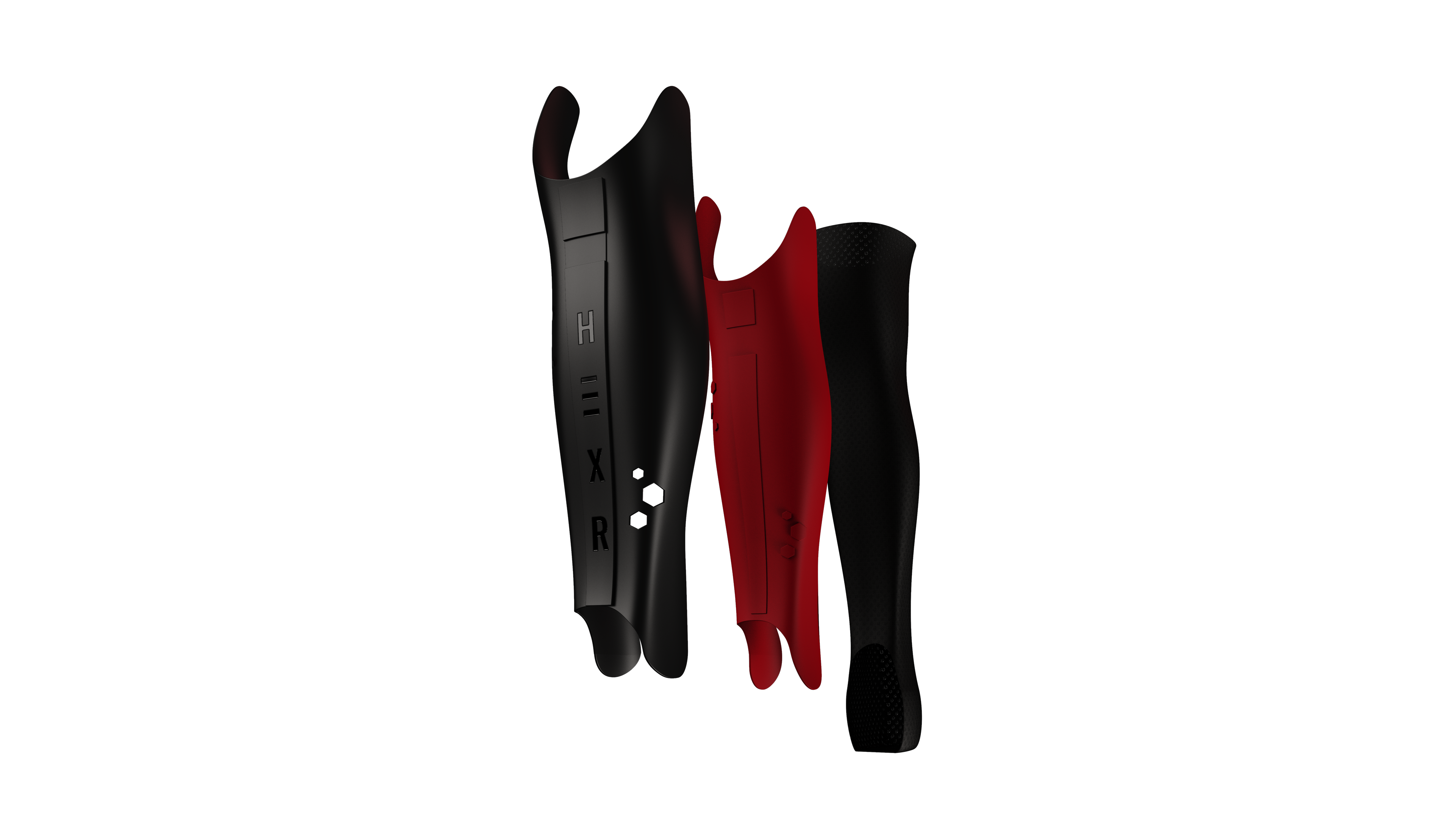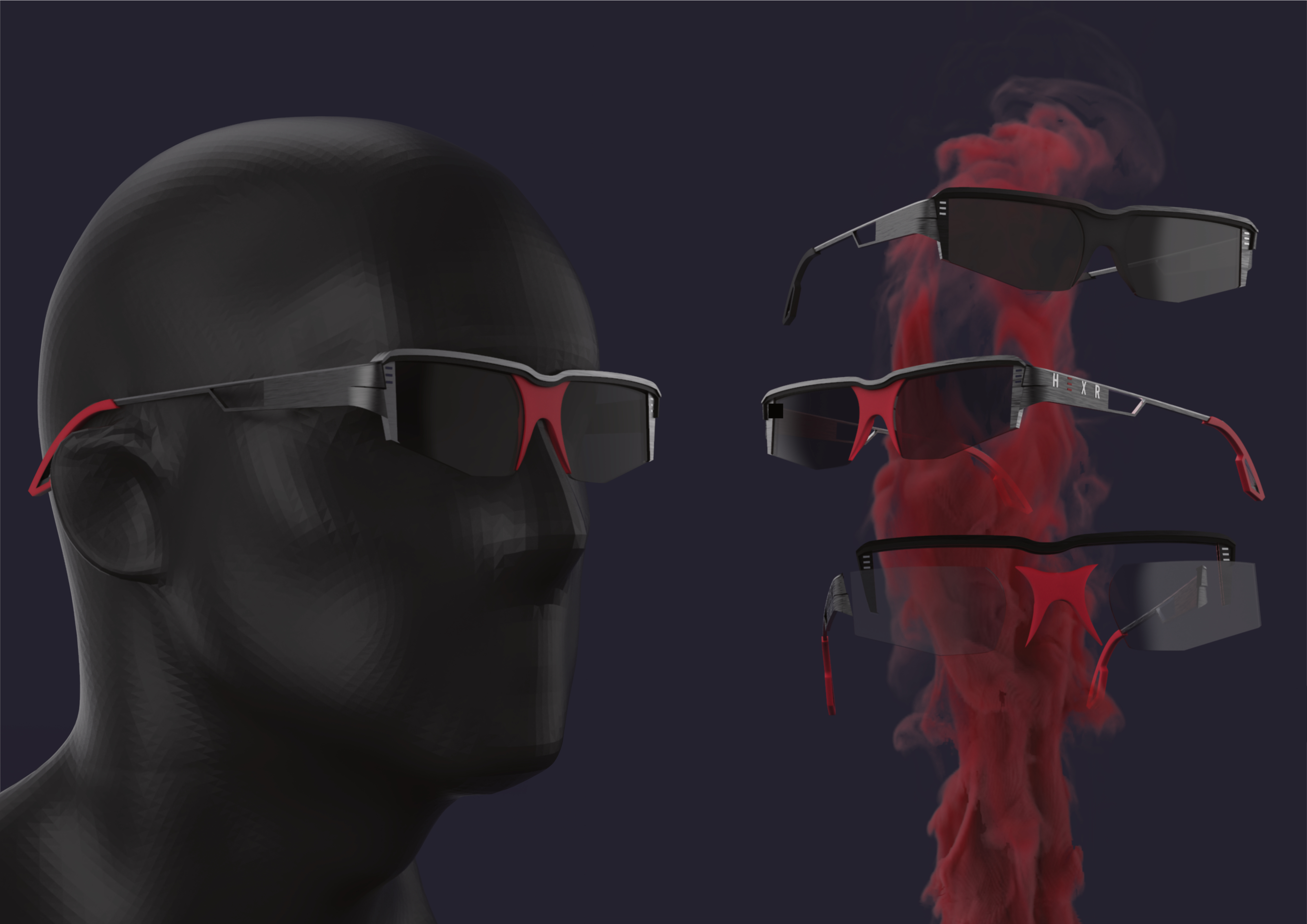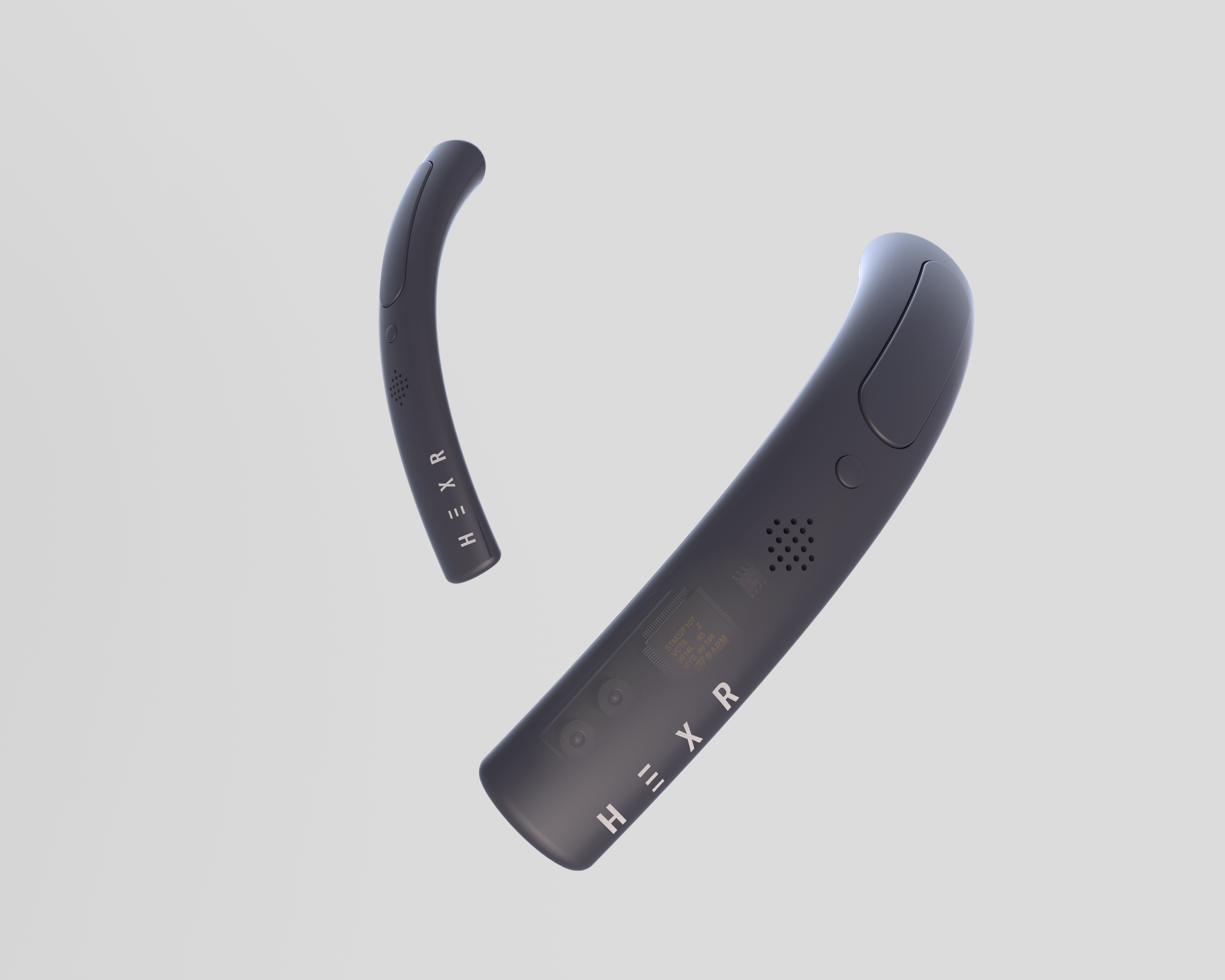HEXR are a technology driven company producing high quality, high performance helmets for cycling. They designed the world’s first custom-fit cycle helmet, offering the perfect fit, the highest safety standards, unparalleled aerodynamic performance, all whilst using sustainable materials.
Using AR guidance, they have also created the HEXR app to help customers begin the bespoke helmet creation process themselves at home, and presented students with the following brief:
“Using the sub-mm Hexr Smartphone scanning solution, create a custom product that is scalable and uses mass production methods.”
The responses were assessed by a jury panel, which comprised of Jamie Cook and Henry Neilson, Co-founders of HEXR, alongside Robin Spicer, Head of Product at HEXR and Loughborough Industrial Design alumnus.
There are three distinct categories for this brief and the winning responses are:
Best of the Best – Tyler Watson
Student comments:
"Many hockey shinpads are made to fit standard sizes, those who deviate from the average are left with insufficient coverage or ill-fitting shin pads. The aim was to avoid using 3D printing and utilise other manufacturing methods to produce a custom fit product. The outcome uses the HEXR sub/mm scanning app, a milled mould and vacuum forming; to shape the Pebax® Rnew® outer shell. Whilst the removable Confor® polyurethane foam is die cut and sewn to a bamboo rash sock, allowing the padding to be machine washed. Moreover, it's seamless fit, extra protection to knees and ankles and being ultra-light weight, aids the players performance."
Judges’ comments:
“Watson has gone into realistic consideration of how this is made at scale, unlike others who either omitted scaled manufacturing despite it being hammered home in the brief or just went with 3DP, reading the drawings she has gone into good detail on real materials, and processes and then tested the product by getting hands on!”


